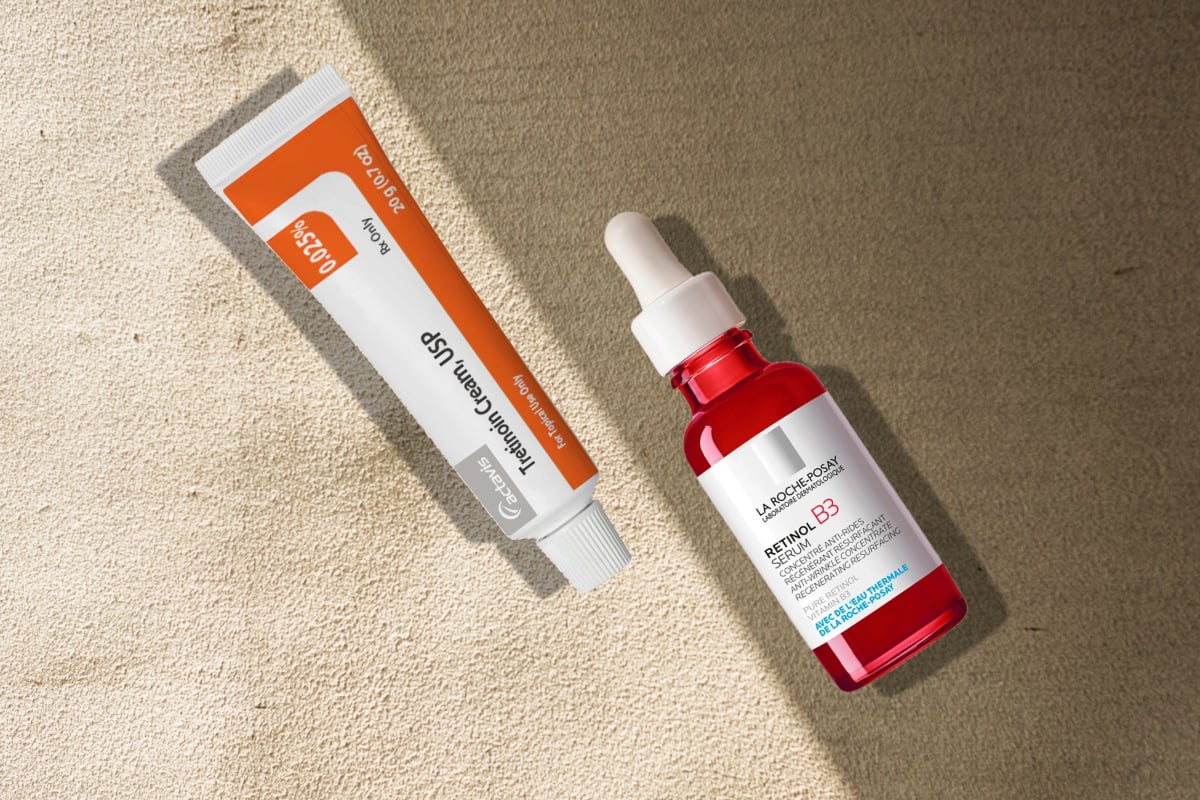Let me set the record straight: skincare isn’t about products with fancy packaging, countless reviews, expensive price tags, or attractive marketing claims. It’s really about what’s inside them. At the end of the day, it all boils down to using products made with ingredients that are beneficial for your skin and avoiding those that aren’t.
But here’s the catch: there’s no one-size-fits-all rule for determining the best or worst skincare ingredients. Every person’s skin is unique, so what works for your friend may not work for you. A prime example of this is coconut oil. It can be a godsend for dry complexions but a nightmare for someone with oily or acneic skin. That’s why you need to know your way around the vast sea of skincare ingredients and be able to distinguish your allies from your enemies. To do that, you must familiarize yourself with the different ingredients and their effects on the skin and identify the ones that work best for you. Once you’ve got a handle on that, you’ll be able to build a personalized beauty routine that will help you achieve a healthy, glowing complexion without putting your skin condition at stake.
Dry skin
Dry skin is characterized by a lack of moisture and sebum and usually results in a dull complexion with a rough, flaky texture. While it can be genetic, dry skin is often caused by a weak epidermal barrier, which is responsible for retaining water. When this barrier is damaged, the skin starts to lose more moisture than it retains, leading to dehydration and even inflammation. Therefore, if your skin is dry is essential to choose skincare products with ingredients that replenish moisture and support the epidermal barrier and avoid those that can further dehydrate it. Also, adding ingredients that stimulate cell turnover to get rid of flaky skin can help a lot in promoting a more radiant appearance.
Look out for
- Hyaluronic acid
- Ceramides
- Squalane
- Fatty acids
- Glycerin
- Shea butter
- Jojoba oil
- Lactic and glycolic acids
- Retinol
- Urea
- Petrolatum
- Panthenol
- Snail mucin
- Honey
Avoid
- Alcohol
- Fragrances
- Sulfates
- Salicylic acid
- Benzoyl peroxide
- Astringents
Oily skin
Oily skin means your body overproduces sebum, which is a natural oil that has the role of moisturizing and protecting the skin. Even though there’s nothing wrong with having more sebum—it actually has plenty of benefits—the problem is when there’s an excess that clogs the pores and causes blackheads and a shiny, greasy look. To avoid that, you need to balance your skin’s oil without stripping away too much moisture.
Look out for ingredients that regulate sebum production, such as niacinamide and salicylic acid, as well as those that soak up the excess oil, like kaolin and charcoal. It’s equally important to maintain your skin hydrated so it doesn’t have to overproduce oil, so check products with hyaluronic acid, ceramides, and squalane. Moreover, avoid drying cleansers and alcohol-based toners—both can dehydrate the skin and force the body to make more sebum. Also, steer clear of comedogenic ingredients as they can clog pores and worsen acne.
Look out for
- Salicylic acid
- Niacinamide
- Retinol
- Linoleic acid
- Kaolin
- Hyaluronic acid
- Glycerin
- Squalane
- Ceramides
- Charcoal
Avoid
- Heavy oils, such as coconut and avocado oils
- Oils rich in oleic acid, such as olive oil
- Mineral oils
- Alcohol
- Harsh scrubs
- Thick, heavy moisturizers
- Silicone-based products
- Algae extract
- Cocoa butter
- Vitamin E
Sensitive skin
When your skin is sensitive or prone to redness, it’s a sign that its protective barrier is compromised. This leaves the skin vulnerable to external damage and more easily irritated by chemicals. To care for sensitive skin, pick products formulated with ingredients that repair the barrier, add hydration, and relieve inflammation. Ceramides, fatty acids, and cholesterol are the best choices because they’re lipids that restore the epidermal barrier and increase moisture. On the other hand, it’s important to avoid using high concentrations of retinol, vitamin C, fragrances, and chemical acids, which can potentially trigger irritation and exacerbate sensitivities.
Look out for
- Ceramides, cholesterol, fatty acids
- Chamomile
- Colloidal oatmeal
- Green tea
- Centella asiatica
- Panthenol
- Aloe vera
- Peptides
Avoid
- Alcohol
- Fragrances
- Harsh chemical exfoliants and scrubs
- High concentration of retinoids
- Sulfates
- Benzoyl peroxide
- Essential oils
- Witch hazel
Acne-prone skin
Because acne is caused by an accumulation of bacteria, dead cells, and sebum trapped in pores, you need ingredients with antibacterial and pore-clearing properties to keep breakouts at bay. Also, anything with anti-inflammatory effects will do great, as well as ingredients that exfoliate the top layer of the skin and decongest pores.
Look out for
- Benzoyl peroxide
- Salicylic acid
- Azelaic acid
- Zinc
- Clay
- Sulfur
- Adapalene or tretinoin
- Retinol
- Alpha-hydroxy acids
- Tea tree oil
- Vitamin C
- Probiotics
- Niacinamide
- Urea
- Honey and propolis
- Centella asiatica
Avoid
- Sulfates and soaps
- Drying alcohols
- Lanolin, coconut oil, and other comedogenic ingredients
- Isopropyl myristate
Eczema-prone skin
Eczema-prone skin is super sensitive and tends to get dry and itchy easily. This is because the natural protective barrier is weak and unable to protect against external factors and keep moisture locked in. As a result, you’re left with a complexion that feels tight and flaky. But that’s not all. Eczema (also known as atopic dermatitis) can also lead to pesky bumps on your skin that can be both painful and itchy. It’s a chronic condition, so you may experience periods of flare-ups where your symptoms are worse, followed by periods of remission where your skin looks and feels normal.
If you have eczema-prone skin, the key is to use soothing and hydrating actives coupled with barrier-strengthening ingredients. For instance, a recent study found that a ceramide-based cream is particularly effective for eczema. Petrolatum is also a really good one because it has skin-repairing and antimicrobial properties. Also, avoid retinol, vitamin C, and exfoliating acids, as these can trigger eczema flares.
Look out for
- Ceramides
- Shea butter
- Colloidal oatmeal
- Aloe vera
- Glycerin
- Hyaluronic acid
- Petrolatum
- Vitamin E
- Niacinamide
- Green tea
- Grape seed extract
- Hemp seed oil
Avoid
- Retinol
- Vitamin C
- Alpha hydroxy acids
- Salicylic acid
- Fragrances
- Drying alcohols
- Ethanol
- Propylene glycol
- Lanolin
- Urea
- Essential oils
Hyperpigmented skin
Hyperpigmented skin shows dark spots or patches that occur due to the overproduction of melanin (skin-darkening pigment) caused by sun damage, acne, and inflammation. To fade hyperpigmentation, use products that contain brightening ingredients like vitamin C, kojic acid, and green tea. They work by interfering with the enzyme responsible for melanin production, reducing the amount of pigment that builds up on the skin’s surface. Chemical exfoliants (think glycolic and lactic acids) are also great because they sloop off pigmented cells. Just make sure you use them in your PM routine; otherwise, they may worsen hyperpigmentation. Also, apply sunscreen every day as a preventative measure for dark spots.
Look out for
- Vitamin C
- Azelaic acid
- Kojic acid
- Niacinamide
- Retinol
- Licorice extract
- Green tea
- Resveratrol
- Mulberry extract
- Coenzyme Q10
- Tranexamic acid
- Sunscreen
Avoid
- Using retinoids and exfoliants during the day
Aging skin
As you age, your skin loses essential proteins like collagen and elastin, which drastically influences how elastic and firm it is. Moreover, aging skin lacks sebum, aka moisture, and has a slow ability to renew itself due to poor cell turnover. To help your skin age healthier and minimize the appearance of fine lines and wrinkles, start using ingredients that boost collagen production, like retinol and vitamin C, and increase hydration, like hyaluronic acid and squalane. Be cautious of sun exposure and wear a broad-spectrum sunscreen with at least SPF 30 to protect your skin from further damage that can accelerate the aging process.
Look out for
- Retinoids
- Vitamin C
- Niacinamide
- Green tea
- Peptides
- Epidermal growth factors
- Bakuchiol
- Centella asiatica
- Squalane
- Hyaluronic acid
- Sunscreen
Avoid
- Harsh cleansers and scrubs
- Drying alcohol




![Does resveratrol in red wine benefit your skin? While sipping on a glass of red wine can be a delightful experience, relying on it for skincare benefits is not the best idea. Sure, red wine contains a smidge of resveratrol, but let's put things into perspective. The concentration of resveratrol in red wine is relatively low. Red wines, specifically Pinot noir from France, typically contain 0.361-1.972 mg of resveratrol per liter.[8] To hit that reference dose of 500mg of resveratrol, you'd need to drink a lot of wine. We're talking about downing anywhere from 100 to 1000 glasses per day. It's a scene straight out of a wine lover's wildest dreams, but definitely not the healthiest approach. Resveratrol Benefits for Skin](https://womensconcepts.com/wp-content/uploads/2022/03/Resveratrol-Benefits-for-Skin.jpg)
